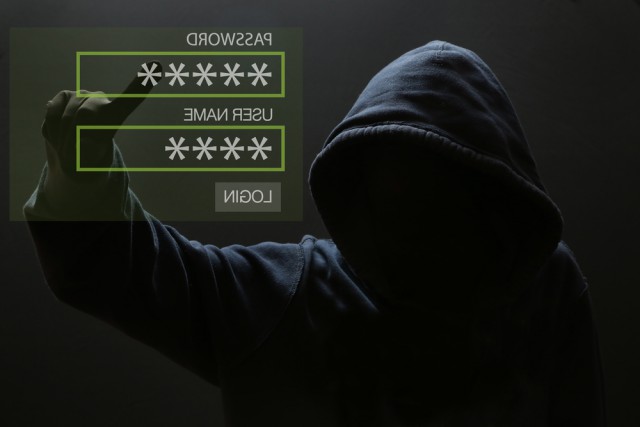
Five steps to mitigating privileged account risks: Getting ahead of a security breach
Privileged accounts are a necessity in all enterprise IT environments. Administrators must have enhanced privileges to manage the environment. Unfortunately, these privileged accounts bring high risk to a company’s network; in fact, recent research shows that almost half (44 percent) of all security breaches that happened in 2017 involved privileged account access.
There are a number of reasons these privileged accounts bring such high risk with them. For example, something so simple as a password reset can mistakenly grant a user full administrative rights that can be misused either intentionally or accidentally. These accounts are also inherently difficult to manage due to the high volume of users and systems that need access to the same credentials, making it difficult to keep the credentials secure. Luckily, there are some concrete, critical steps that an organization can take to ensure risk on its network is minimized and protected from privileged account misuse.

If you've added your phone number to Facebook for 2FA security, it can be used to search for you
Facebook has been encouraging users to enable two-factor authentication to boost the security of their accounts, but it turns out that there's a slightly sinister side to this feature.
You may well have opted to maintain an element of privacy by omitting personal information such as your address and phone number from your profile. But if you've used your mobile number to secure your account with 2FA, even if it is not visible to others, it can still be used to search for you -- and there is no way to opt out of this.

Want to hack an iPhone? Cellebrite hacking tools are available on eBay
iPhones are renown for their security -- to the point that even law enforcement agencies have trouble accessing their contents. An Israeli firm, Cellebrite, became well-known when it transpired that hacking tools it made were used by the US government to crack locked iPhones… and now its hacking tools are available to buy on eBay.
For as little as $100-$1000, you can get your hands on a second-hand piece of Cellebrite equipment (a fraction of its usual selling price). For just a few Benjamins, you could get a Cellebrite UFED (Universal Forensic Extraction Device) and use it for whatever you might fancy.

How Open Banking could make online transactions safer [Q&A]
We recently reported on how formjacking has become a popular and lucrative form of online fraud. It’s difficult for the consumer to detect which makes it a particular hazard.
But in the UK the new Open Banking standard, aimed at making it easier for consumers to share financial data across organizations, could make formjacking and other frauds obsolete. We spoke to Luca Martinetti, CTO and co-founder of financial API provider TrueLayer to find out more

Home endpoints twice as likely to be infected as businesses
Despite the fact that in recent months we've seen cybercriminals focusing their efforts on businesses, 68 percent of infections are seen on consumer endpoints, compared to 32 percent on business endpoints.
This is one of the findings of the latest Webroot Threat Report, which also shows that legitimate websites are frequently compromised to host malicious content, with 40 percent of malicious URLs hosted on good domains.

40 percent of ticketing site traffic comes from bad bots
If you've ever tried to book tickets for a concert, festival or event you will know that it can be something of a frustrating experience, and bots could be making it even more so.
New research from Distil Networks finds 39.9 percent of traffic on ticketing sites comes from bots used by brokers, scalpers, hospitality agencies, and sundry criminals to execute a number of attacks, including denial of inventory, spinning and scalping, scraping seat map inventory, fan account takeover, and fraud.

Isolating privileged access is critical to security
A new study reveals that 87 percent of cybersecurity professionals believe separating privileged environments from corporate, internet-exposed environments is highly critical for protecting sensitive information.
But the Privileged Access Workstations (PAW) survey carried out by Cybersecurity Insiders for endpoint security company Hysolate also finds that time-consuming access processes and the inability to install apps, browse the web or plug in external devices, are key implementation roadblocks.

Serious Amazon Ring vulnerability leaves audio and video feeds open to interception and spoofing
Security researchers from Dojo by Bullguard have discovered a vulnerability in Amazon's Ring doorbell that leaves it prone to man-in-the-middle attacks.
As well as enabling a hacker to access audio and video feeds in a severe violation of both privacy and security, the vulnerability also means that an attacker could replace a feed with footage of their own. Revealing the security flaw at Mobile World Congress, Yossi Atias from Dojo, demonstrated how a feed could be hijacked and injected with counterfeit video.

Credential stuffing remains a major problem for retail sites
Thanks to the huge volume of stolen credentials now available online, credential stuffing has become a major issue for the retail industry.
A new report from edge platform specialist Akamai shows that hackers directed credential abuse attempts at retail sites more than 10 billion times from May to December last year.

Peer analytics offers better visibility into security performance
It's useful for security and risk leaders to know their industry's security performance standards and be able to perform peer and sector-wide security benchmarking. But the information to be able to do that isn't always easily available.
Security ratings company BitSight is launching a new Peer Analytics feature on its platform that allows the comparison of security performance across global organizations.

Mobile security platform combines biometrics and behavior to enhance security
Multi-factor authentication specialist Veridium is launching a new behavior analytics feature to better protect user identities and prevent malicious activity.
Incorporated in the VeridiumID authentication platform, InMotion increases the reliability of all native biometrics for authentication by pairing behavioral data captured on smartphones with users' biometrics, making it more difficult for malicious actors to spoof their fingerprints or faces to gain access to accounts.

Americans more likely to stop dealing with a brand after a breach but Brits hold a grudge for longer
New research into consumer trust and spending habits by contact center payment security company PCI Pal shows 62 percent of Americans report that they will stop spending with a brand for several months following a hack or breach, versus 44 percent of Brits.
But when the British do react they do so for the long term, 41 percent of British consumers never return to a brand after a hack compared to only 21 percent of Americans.

The cloud moves too fast for security say 60 percent of security pros
Cloud-based business initiatives are accelerating faster than security organizations' ability to secure them according to 60 percent of respondents to a new survey.
The study by network security company FireMon also finds that in many cases security personnel are not even included in cloud business initiatives.

Cybercriminals earn over $3 billion a year from social platforms
Social media-enabled cybercrimes are generating at least $3.25 billion in global revenue annually according to a new report.
The study released by virtualization-based security company Bromium and researched and written by Dr Mike McGuire, senior lecturer in criminology at the University of Surrey, looks at the range of techniques used by cybercriminals to exploit trust and enable rapid infection across social media.

Senators want Huawei equipment removed from US power grid because of security concerns
Huawei may well be causing excitement with its foldable smartphone, the Mate X, but the company's troubles in the US continue. The American government has already banned the use of some Huawei equipment, including in 5G networks, and there are now calls for the shunning of the Chinese company to spread to the US power grid.
Although Huawei has remained defiant in the face of sanctions by the US, the Senate Intelligence Committee has now written to the Departments of Homeland Security and Energy, calling on them to block the company's network-connected hardware from being used in the electrical grid.
